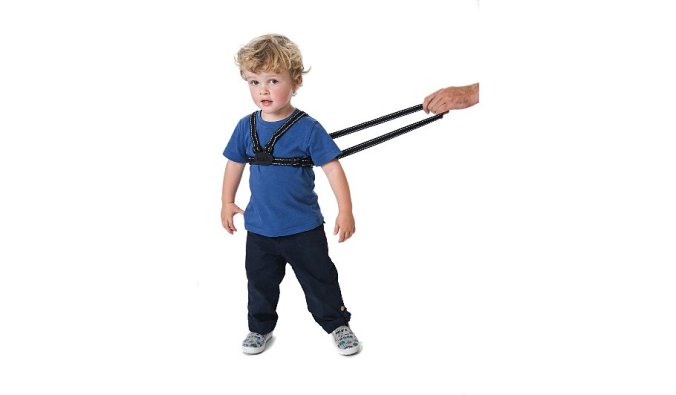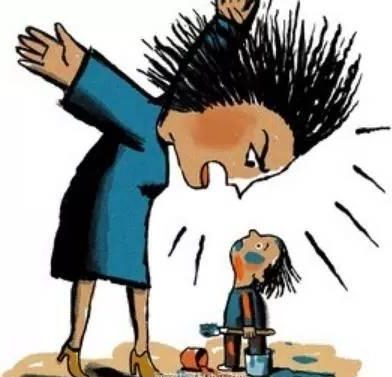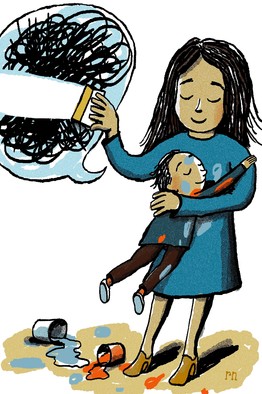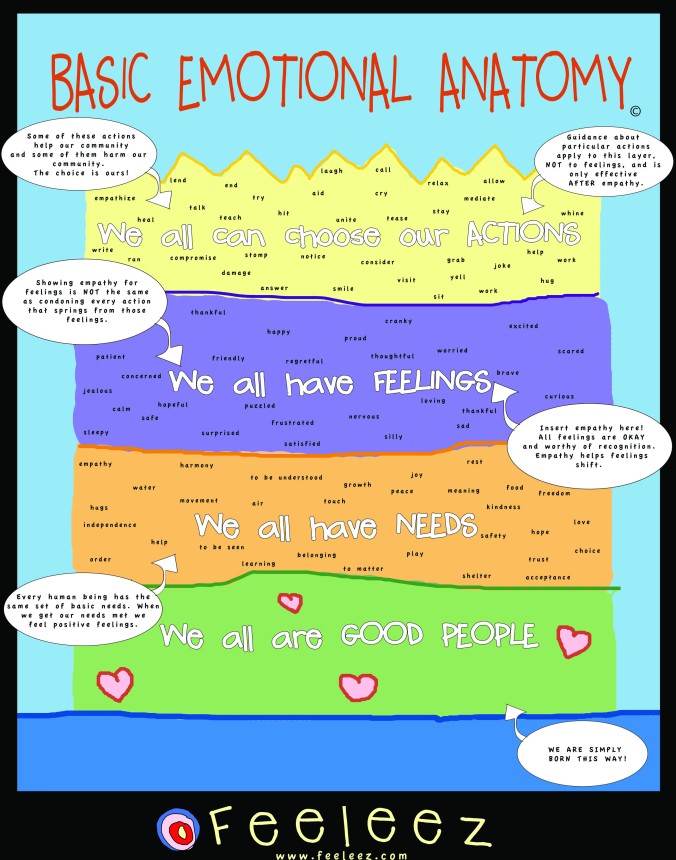 I’ve written and talked about this before in some detail elsewhere, but when I read Glennon Melton’s article, “Don’t Carpe Diem“, about how hard she thinks parenting is, I was thrown once more into a theoretical tizzy, and tantrum-like even stomped my foot on the floor as I said, “Parenting isn’t hard.” And then adamantly, as if the computer screen wasn’t listening closely enough to me, I added, “Raising a kid is easy! It’s being ‘parents’ that makes it hard!”. But neither the computer nor the author of the article were answering (especially since the comment option was closed on the article, and she’s gone on to write a book…).
I’ve written and talked about this before in some detail elsewhere, but when I read Glennon Melton’s article, “Don’t Carpe Diem“, about how hard she thinks parenting is, I was thrown once more into a theoretical tizzy, and tantrum-like even stomped my foot on the floor as I said, “Parenting isn’t hard.” And then adamantly, as if the computer screen wasn’t listening closely enough to me, I added, “Raising a kid is easy! It’s being ‘parents’ that makes it hard!”. But neither the computer nor the author of the article were answering (especially since the comment option was closed on the article, and she’s gone on to write a book…).
Now don’t get me wrong on at least 3 counts (on all others, feel free to get me wrong if you must… 😉 ) — 1) Of course there are situations in nearly every single day of parenting any child that have emotional intensity, or involve disagreement, or that require negotiation, or that ask us to look more deeply at ourselves, or that leave us questioning. And 2) there are, also of course, many families out there who are actually dealing with a developmental or congenital condition that makes all of the normal types of child-growing processes more difficult. And finally, 3) I know, regardless of the situation, or how it arose, if you’re struggling in parenting, the next to last thing you need is someone giving you a hard time about it — the very last thing is to get down on yourself.
So with those disclaimers firmly in place, I do want to share a couple of thoughts with you about how we’ve been taught to make things harder on ourselves and our kids, and how we can make it all a bit easier. Today, though, instead of launching into a lengthy diatribe about all of the different facets of my philosophy of enjoying parenting — especially since I have done so at length already more than once — I just want to talk about the general concepts and then direct you to further reading as your interest inspires. I hope you’ll forgive the redundancy — I am mostly here to soothe my own thoughts about it, but I’m also feeling a great deal of empathy for you parents out there that are just suffering through unnecessarily, everyday. My heart goes out to you. You deserve to feel good and have nice kids.

So, beginning somewhat in the middle of things… Here’s the central thesis that I want you to at least have trouble forgetting about for a day or so: if you are struggling through your parenting days, especially if you are doing so alone, and you feel as though this whole operation of raising your kids is basically hell with a mythical silver lining — It. Doesn’t. Have. To. BE. Like. THIS. If parenting had been as difficult as modern society has made it for our whole history, our species would’ve died out ages ago.
Simply put, there are strategies that make raising kids easier and more enjoyable, and others that are currently more popular that do the opposite. Generally speaking these strategies break into groups over whether they are strategies that are designed to “work with” our children and their biology, or strategies that are designed to “do things to” our children to control them. I don’t mean that to sound sinister, just simplifying for the sake of time — I’m sure there aren’t more than a few parents who’ve actually thought, “How do I control them? I know! By doing things to them! Bwahahahaha….”. Nevertheless, until quite recently (and believe me there is a rising tide already), the predominant thinking on parenting since at least the 50’s has been that the best way to get children to behave like adults is to attempt to control and modify the behaviours themselves by doing things to kids to make them want to behave in certain ways. This Pavlovian approach means we give rewards and punishments of various sorts to try to reinforce or discourage certain behaviors, and there’s little room in this approach for any of the feelings anyone is having or the relationship between the parents and children.
Here’s the thing, though — and modern history is replete with examples of this scenario — in stepping into the process of child-rearing, B.F. Skinner and the wave of Behaviorists traveling in his wake, interrupted a process that Nature had already spent epochs perfecting. We humans arrived at where we are, not by controlling our children’s behaviours, but by nurturing their development. We became the preeminent species on the planet, not by using CIO, or catching our children being good, not by star charts, and time-outs (“…from positive reinforcement”, as it was originally called), not by any means of reigning in what children do — but by caring for who they are. There weren’t any theories on how to get kids to behave and do what you say and be good — there were just little families and villages welcoming new members, caring for their needs and teaching them about living. There was already a natural flow of maturation and becoming, before we got so smart that we f#cked it up.
Now, we are the living legacy of that nonsense. Many of us were parented so poorly — not necessarily without love or decent intentions, and purely by accident, really, but poorly for what humans need, nonetheless — that we don’t have what millennia of parents before us took for granted in terms of a natural balance of our own, a natural sense of self-assurance, natural attachment to the Earth, natural parental instincts, inherent trust in the natural process of which are a part, or naturalized experience with how our species nurtures babies. We’re social test-tube humans — manipulated by our own science into this unnatural and alien state of dissociation with what is normal even for ourselves. But don’t worry — we aren’t too far gone yet, and as I already mentioned, there are many of us who are already daring to not swim upstream, and who instead are learning to go with the natural flow. And I’m here to reassure you — you can come right on in, the water is fine!
necessarily without love or decent intentions, and purely by accident, really, but poorly for what humans need, nonetheless — that we don’t have what millennia of parents before us took for granted in terms of a natural balance of our own, a natural sense of self-assurance, natural attachment to the Earth, natural parental instincts, inherent trust in the natural process of which are a part, or naturalized experience with how our species nurtures babies. We’re social test-tube humans — manipulated by our own science into this unnatural and alien state of dissociation with what is normal even for ourselves. But don’t worry — we aren’t too far gone yet, and as I already mentioned, there are many of us who are already daring to not swim upstream, and who instead are learning to go with the natural flow. And I’m here to reassure you — you can come right on in, the water is fine!
Too good to be true, you say… Full of canal water, am I? Did someone call me a snake-oil peddler?! A blasphemer?!!
Well the honest truth is that if we can get all of the BS that we’ve been asked to swallow about how parenting is “supposed” to be out of our proverbial systems, and get back to parenting in line with our biology and in line with our real intentions for our children’s development — the whole thing really is easier, even though we’re all coming at it somewhat handicapped. And it doesn’t have to involve any of the sort of strategizing, surveillance, or coercion of certain behaviours with which modern parents get so distracted and distressed today. I don’t just say that based on theory, or clinical research — though there is plenty of both — I say that there is a better, easier, happier way in parenting because I live it.
Before you get mad at me for that, remember my disclaimer(s)… Even we, in our better, easier, happier experience, have issues arise everyday, struggles to get passed, and stupid-crap-that-sucks dropped into our metaphorical laps. I’m not saying that there is a way to parent that doesn’t involve different humans living life together and trying to figure out how to stay alive. I’m not even saying, “I enjoy every minute of that precious, precious time because I know I’ll never get it back…” or anything of such sappy sort. The sh!t does hit the fan in our house, too.
The difference in our home — and the difference that makes all the difference — is that, rather than working on our kids to make them do good, we’re working with them to help them be well. That may require certain intentions, and I think it does prescribe certain actions, but they aren’t difficult, and once habitual, undoubtedly have the ability to improve your quality of life. That doesn’t sound so bad does it?
The basic epicenter of this work — both what you are working with and what you are working toward — is the relationship. This is the magical key that Nature gave us to make us her current pinnacle. Everything about us is built to accommodate relating. It is the way we succeed in life, and in infancy, and everything in human maturation depends on it utterly. So if you remember nothing else, remember that the key to a happier parenthood is to act in service of having a warm relationship both now and forever with your children, by and for relating with them. That’s how you help them learn everything they need to know about being here. That’s how you guide them. That’s how you make it easier. AND that’s how you enjoy it more.
 Of course, and again, there are certain actions that are more and less in line with serving the relationship. Letting our children walk all over us and have everything always and only the way(s) they want it without regard or respect for our (own) feelings, and/or repeatedly ignoring it when we are mistreated, and/or withholding information about how people, things, and life work from them — do not serve our relationships with our kids. Throwing them screaming into time-out because they have some feeling(s) and need(s) driving them to get help in the ways we’ve shown them we’re available to “help” — that is, “traditionally” doling out punishment, taking things without asking, disrespecting them, making them perform politenesses, judging and scolding, being physically rough — also not too cool for an enduring relationship. If we want to relate with them in the long run (think: getting to see our grandkids…), then we would do well to make that easier by how we relate with them in the short term.
Of course, and again, there are certain actions that are more and less in line with serving the relationship. Letting our children walk all over us and have everything always and only the way(s) they want it without regard or respect for our (own) feelings, and/or repeatedly ignoring it when we are mistreated, and/or withholding information about how people, things, and life work from them — do not serve our relationships with our kids. Throwing them screaming into time-out because they have some feeling(s) and need(s) driving them to get help in the ways we’ve shown them we’re available to “help” — that is, “traditionally” doling out punishment, taking things without asking, disrespecting them, making them perform politenesses, judging and scolding, being physically rough — also not too cool for an enduring relationship. If we want to relate with them in the long run (think: getting to see our grandkids…), then we would do well to make that easier by how we relate with them in the short term.
There’s a great long list of various things parents can do in order to make relating with kids better, easier, and happier for every one in the family. Just click here to find my current more detailed list(s).
But off the top of my head and roughly in developmental order, I’d say:
- We ought to consciously nurture inutero development and calm, have as gentle and natural of a birth as we can manage, and do all the groovy AP bonding stuff — chest-to-chest time, extended baby-wearing, extended nursing, extended co-sleeping, immediate responsiveness, tender and empathetic nurturing, etc. — first. Those are our first main tasks, and they all center around making baby feel welcome and safe. If we can do those with close attention, then we will have already made everything that we want to do in parenting exponentially easier for everyone involved. Srsly.
- Inform inform inform. Give our growing humans lots and lots and lots of information. Read, and talk, and process, and teach, and share, and explain, and repeat. I would add a little common sense caution here, though, about right timing and right presentation — we do want to consider our audience. The point here, in terms of this current discussion, is to teach them about how people like to relate and be related with. They need all the information ever recorded about harmonious human interactions because they’ve never had any before us.
- Be how we want them to be. This goes with the above, but refers specifically to what we show. Despite the old adage, children will not comply with, “Do as I say, not as I do”. The mirror neurons in their brains, simply won’t let them. So let’s just do everyone a favor and as much as we are able, and as often as we can muster it: be kind, empathetic, polite, helpful, interested, attentive, affectionate, honest, authentic, human, and everything else we hope for our children to be. Their brains will learn it just by being around us.
- Recognize our own worth. Somewhere shortly after early parent-infancy, or a little later if we’re “lucky”, most natural moms/dads/caregivers start thinking and/or being told that being a parent is not quite enough. That we ought to be getting back to the career, taking on a hobby, cleaning the house more, focusing on our “self” more, or starting a revolution. “Sure parenting your wee ones is great, everyone needs do that, but send ’em off to pre-school as soon as you can so you can get back to…” as they often tell us. But the truth is, parenting is the single most important endeavor on the planet. Period. We can’t do anything more important, especially if we have kids already… It is absolutely enough to be doing our best at raising our children (which includes taking good care of ourselves, too, of course!). Tell anyone that you need to tell, including yourself, this.
- Use empathy. Every time with everyone involved. It will soothe us in our dealings if we can empathize with ourselves and the little one(s) we’re dealing with at the moment. And it will soothe them as well to know that we identify with what is going on for them. We can call out those feelings in our heads and/or out loud to our children, so we have a full-brained response and/or they hear, and let ourselves and/or our kids know when we understand their feelings. If, and especially when, we cannot or wish not to comply with our children’s preference(s), we can be with them through their feelings, genuinely and as unhurriedly as we’re able. We can say no and still hold them while they cry about it. Doing so helps natural feelings get processed more smoothly, models caring for others’ feelings to our children, and nurtures the relationship that inspires teamwork and cooperation.
- Look for how to use that teamwork and cooperation rather than coercion and manipulation to solve issues. When something needs fixing, it is the team’s mutual issue, and it get’s worked out by working it out. This again strengthens the relationship in multiple ways, not the least of which is engendering and maintaining trust.
- Get some community. We honestly weren’t designed to parent in single family homes, or in an isolated SAHM or SAHD situation — that’s not the natural model for raising humans. To some degree we’re stuck with what we’re stuck with, in that most of us can’t go back to village life where we wore our babies to the fields, and had village and family child-care. Most of us don’t have anything like that, so we have to reach out and take hold of any like minded community we can when it presents itself. If you don’t feel like you have any options, it may be important enough to make some. You’ll be glad you did… If you do have community — then by all means, do what you have to do to commune — capitalize on your good fortune and share the bounty of a tightknit village.
- And don’t for get to have fun! Laughing and playing with our kids is not only good for our relationships with them, it’s also good for reducing our own stress and increasing our resilience. We ought to be looking for it, using it to salve potentially rough moments, enjoying it when it comes randomly, and letting it guide our choices. We can trust in the process, we know our value, we can afford to relax a little and have a good time. After all, isn’t that what we’re talking about here?!

If you want more of my thoughts on the subject of how to stop having a crappy time parenting, and how to start having a lot more fun — check out these posts: the last post of the “Choose Your Own Adventure Parenting” three-post series here; more information on how to work with the little people here; some thoughts on making leadership easier here; and a few more thoughts on using information to improve the quality of your parenting existence here.
I sincerely hope you have the time of your lives. I hope you can honestly say, parenting is so fun! You deserve that…
*
Be well.
*
PS — If you want support getting into the groove of having a stellar, fulfilling, rewarding, joyful, and easy parenting life — get in touch with me, it’s what I do for a living, and I’d like nothing more than to help you!















 Team
Team